News
Includ-EU and the Agenda 2030
Two days of exchange at the heart of Europe.
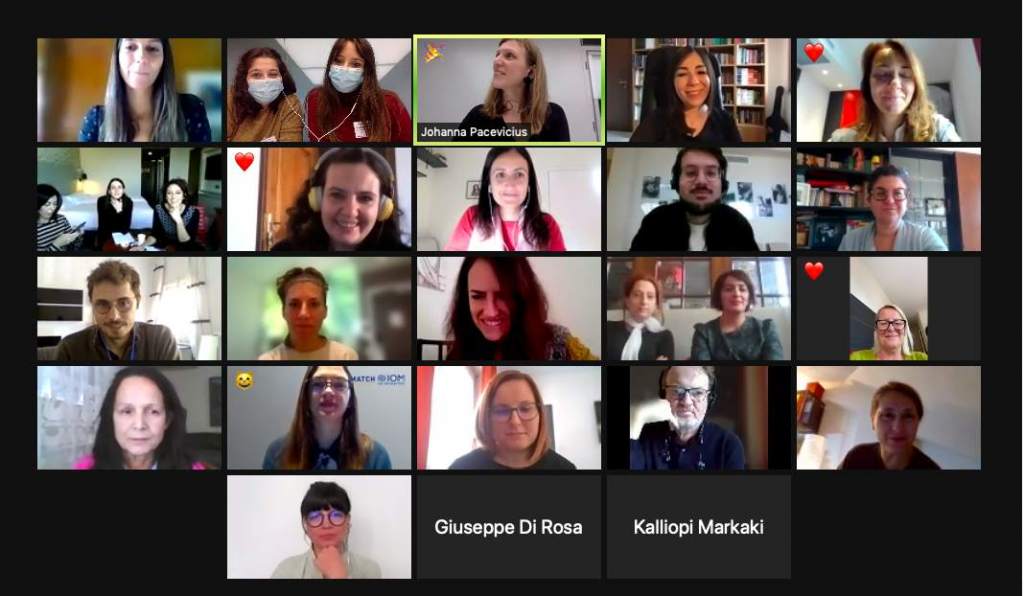
On 28-29 October, the Includ-EU project held its second Regional Workshop in a series of 5 thematic sessions facilitating knowledge sharing and discussing the design of Includ-EU pilot projects, as well as other integration policies and projects carried out across Europe. The workshop happened in a hybrid format within the framework of the Agenda 2030 Conference, which took place in Strasbourg and online, and in partnership with Region Grand Est and the City of Strasbourg.
On the morning of the 28, after the opening of Ms Rabab Ahmad, Policy and Programme Analyst (IOM), participants were welcomed by the facilitator, Mr Abram el-Sabagh (Design for Impact) and encouraged to share a picture telling the story of why they got into migration and integration, as a way of breaking the ice and setting a cosy atmosphere for the rest of the day.
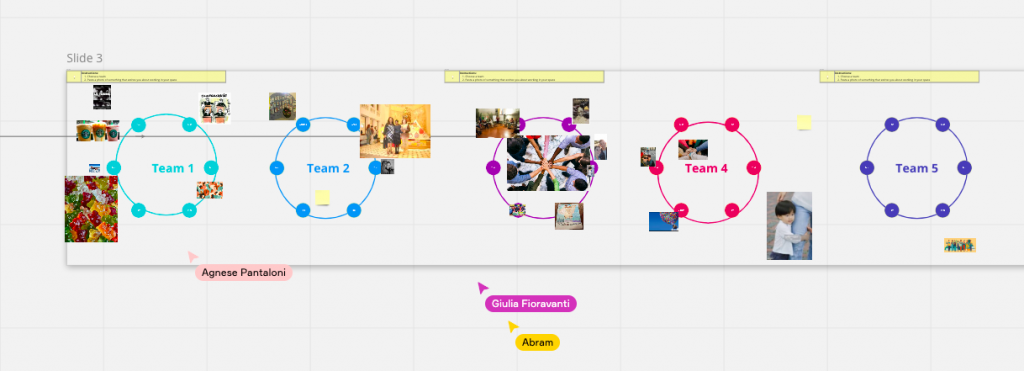
The focus of the Includ-EU project workshop – Day 1 – was “Rethinking services & raising awareness on design in shaping more sustainable services”.
Consortium partners from SocioLab, represented by Ms Silvia Givone and supported by ANCI Toscana (National Association of Italian Municipalities-Tuscany) held a presentation of how Service Design methods helped them Co-design workshops for the mutual re-definition of pathways and networking models among Job Centers and managing organizations of reception centers. In particular, the identification with a “typical-user” and the modelling the process through which the user comes into contact with the services allow them to carry out an analysis and confrontation on difficulties/emotions of front line workers and service providers.
In the second half of the morning, Ms Johanna Pacevicius (AER) introduced a revamped “marketplace”, which put the focus not so much on the presentations of the good practices as such but rather on the collective intelligence for mutual learning that could be capitalised from all the expert participants in the workshop. In other words, all participants were actively involved in the discussion of challenges encountered by the two presenters and offered their counsel, expertise and help to answer questions raised by Ms Sofia Luis (IOM), who introduced us “The Migrant Women & Girls Toolbox, City of Luxembourg (Equalcity Project)”; and Ms Alessia Rochira (Unisalento), who spoke about their research project on “Culture Brokers: when integration is made by the youngest” (Regin Project). As a way of example, in the second scenario, questions such as “What are the possible effects of this linguistic and cultural mediation activity for young immigrants and for the reciprocal relationships they establish with their families and schools?” and “What are the possible effects on family relationships?” were lively discussed by participants who had at times contrasting ideas on whether young immigrants can carry out a more formal activity of linguistic and cultural mediation on behalf of their parents. Eventually, many tips and resources were shared, thus certainly enriching the base for the research project carried out by Alessia and her team.
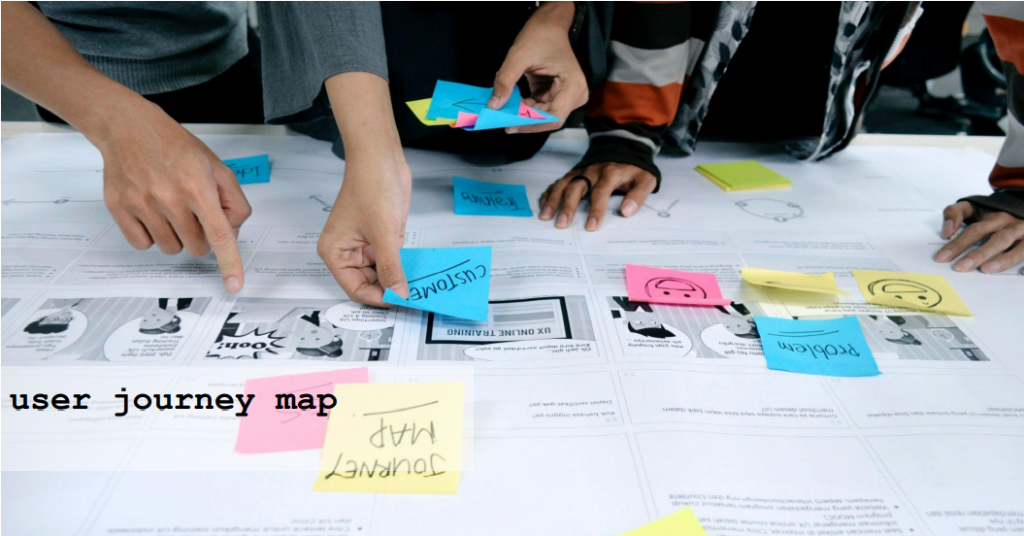
The afternoon study visit of the urban project Deux-Rives was very interesting for participants. “In the EcoQuartier Danube, we appreciated not only the architectural form of the complex and the connection with the river, but also the functional mix: the homes (for sale or rent), the co-designed cohousing, the residence for vulnerable groups (senior housing, supported housing for mental health patient), the beautiful wooden playground, the common vegetables garden (with farm animals!), schools and spaces for social activities”, shared Ms Giulia Maraviglia, an onsite participant from SocioLab in Tuscany.
She went on explaining how in the nearby Presqu’île Malraux the contemporary architecture dialogues with the industrial heritage to form a suggestive water landscape. “The docks, buildings in search of a new identity, have been transformed in a lively media library and a fablab/coworking.” In Strasbourg, Giulia saw the materialization of the housing community-building processes that are being similarly developed in the metropolitan area of Florence, her city in Italy, through the project “Abito in community“.
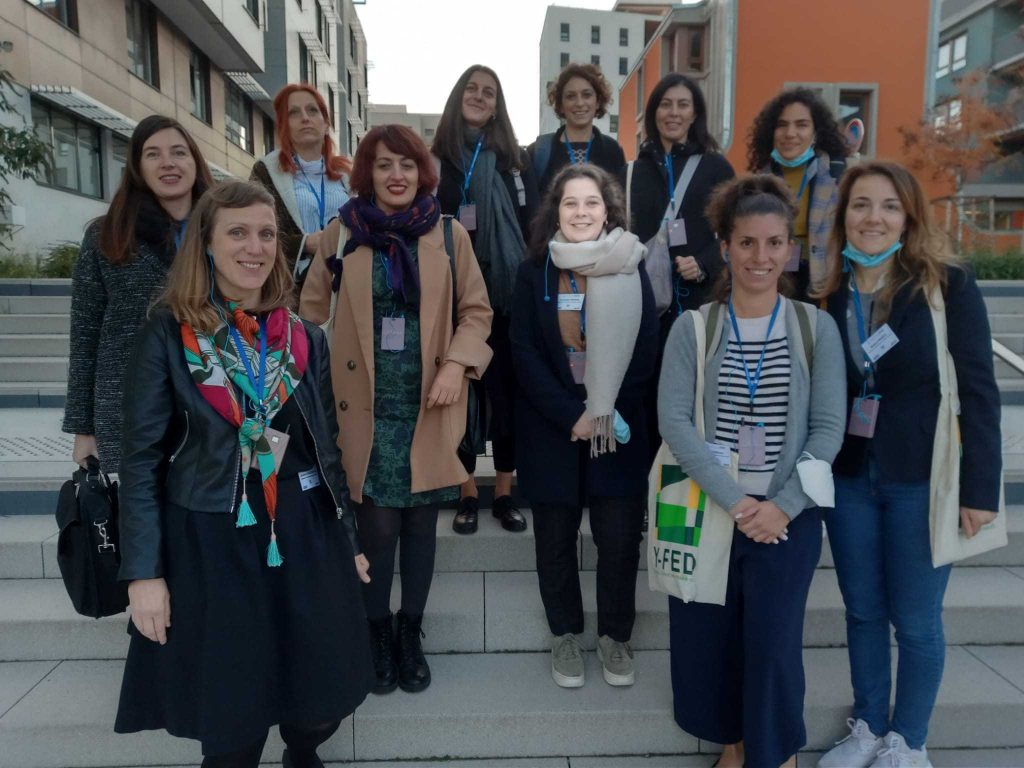
On Day 2, a much more concise but still very practical workshop was held. For this occasion, the IncludEU project partnered up with the Council of Europe. The subject was one raised and felt by many, in previous webinars of the project, namely how to counteract hate speech, which is an increasing threat to human rights and democracy.
The workshop dealt with important questions such as: How can we define and tackle Hate Speech and what can we do to stop it? Can regional authorities help to protect the most vulnerable groups of society such as the migrant population?
At first, Ms Irena Guidikova, Head of Inclusion and Anti discrimination programmes at the Council of Europe introduced the complexities of defining hate speech and finding the right and effective response. Then, our guest speaker, Ms Julia Mozer, Communication & Policy Officer at CEJI office, gave a brilliant overview on tools to counterstrike Hate Speech and “drive out the hate out with a positive message that is constructive and can engage the audience”.
As the objective of the Agenda 2030 Conference was to show and reiterate the key role that regions play alongside cities in facilitating the transformation required to realistically implement and achieve the 17 Sustainable Development Goals, our workshop demonstrated how inclusion and integration have to be indeed understood as integrated and mainstreamed into many (if not all) of other goals, in particular gender equality, affordable housing, quality education and reduce inequalities.
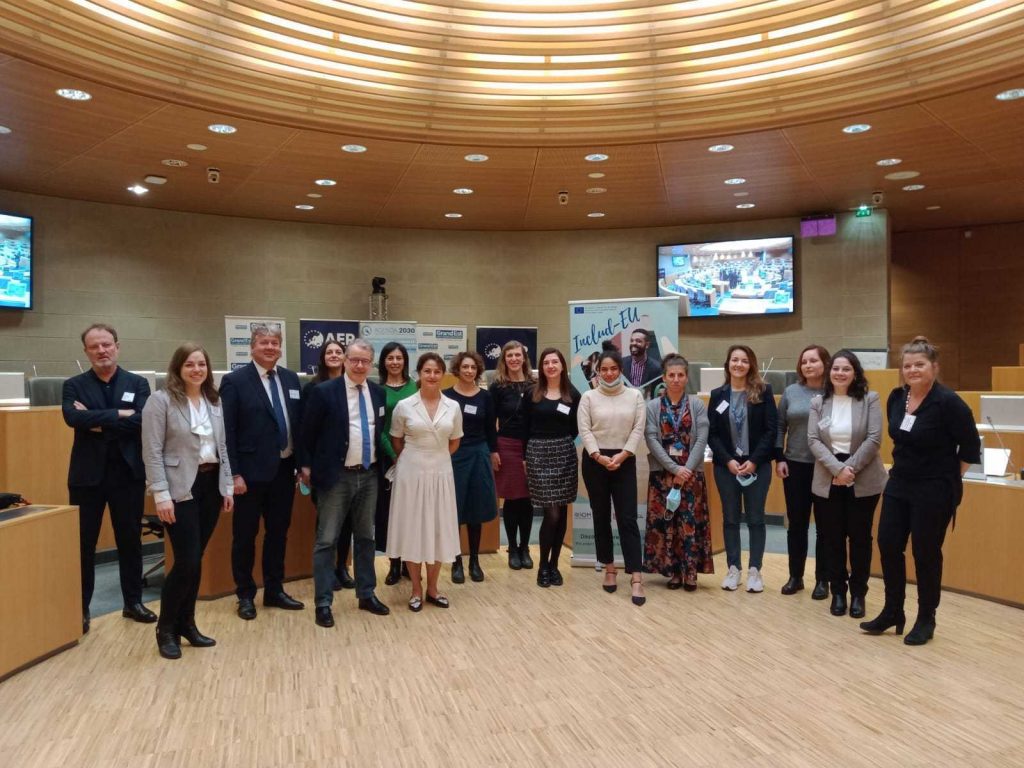
Do you want to share your project with our community and stakeholders?